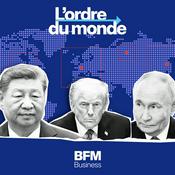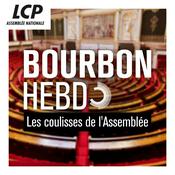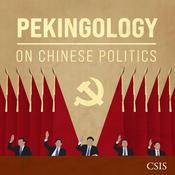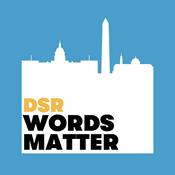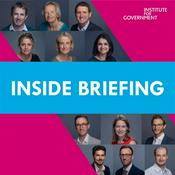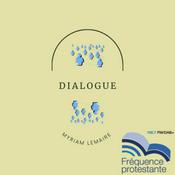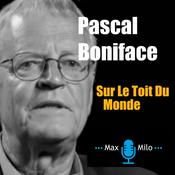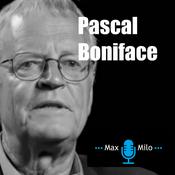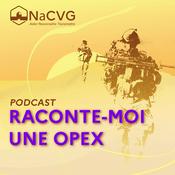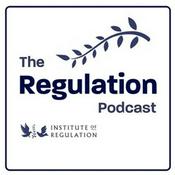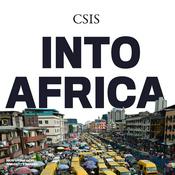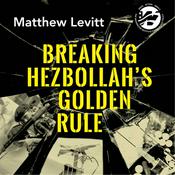Biosecurity: Changing the Game
The Pandemic Center, Brown University School of Public Health
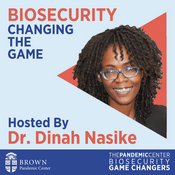
Dernier épisode
21 épisodes
- Dr. Dinah Nasike and her guest Dr. Issa Makumbi, an expert in public health and epidemiology who serves as the Deputy Director of the Uganda National Institute of Public Health (UNIPH), have an in-depth conversation on disease surveillance, and why it is so important for preventing, detecting, and responding to biological threats.
Part II: Communities on the Frontline – Strengthening Epidemic Preparedness & Response
11/12/2025 | 34 minDr. Dinah Nasike concludes her conversation with Professor Judy Omumbo, a renowned public health expert and epidemiologist, on the role communities play in epidemic preparedness and response and why communities are not just beneficiaries of health systems but critical partners in stopping outbreaks before they spread.- In this episode, Dr. Dinah Nasike sits down with Professor Judy Omumbo, a renowned public health expert and epidemiologist, to explore the vital role communities play in epidemic preparedness and response. From grassroots mobilization to trust-building and rapid response systems, Professor Omumbo offers insight into why communities are not just beneficiaries of health systems but critical partners in stopping outbreaks before they spread.
Part II - Genomic Surveillance: A Biosecurity tool for deterrence, detection, and response to emerging threats
13/11/2025 | 29 minIn this second and final part of Biosecurity: Changing the Game's discussion of genomic surveillance, Dr. Dinah Nasike and guests from Ginkgo Bioworks - Joshua Griffin Dunn who is the Senior Director, Computational Biology and Head of Design; and Mitchell Wolfe who is the Vice President for Global Engagement and Governance at Ginkgo - explore one of the most powerful tools we have for preventing the next pandemic or bioterror event.
"It’s a story about technology, intelligence, and trust — and how sequencing tiny bits of genetic code can help us detect threats early, attribute their origins, and even deter malicious actors."Genomic Surveillance: A Biosecurity tool for deterrence, detection, and response to emerging threats
30/10/2025 | 31 minThis episode of Biosecurity: Changing the Game is all about genomic surveillance — one of the most powerful tools we have for preventing the next pandemic or bioterror event. It’s a story about technology, intelligence, and trust — and how sequencing tiny bits of genetic code can help us detect threats early, attribute their origins, and even deter malicious actors.
Dr. Dinah Nasike explores this topic with guests from Ginkgo Bioworks - Joshua Griffin Dunn who is the Senior Director, Computational Biology and Head of Design; and Mitchell Wolfe who is the Vice President for Global Engagement and Governance at Ginkgo.
Plus de podcasts Gouvernement
Podcasts tendance de Gouvernement
À propos de Biosecurity: Changing the Game
Host Dr. Dinah Nasike takes you on a journey through the complex and evolving world of biosecurity, featuring insightful conversations with leading professionals, field experts and innovators in the field. From emerging and re-emerging epidemics and early-warning systems research and innovation, to pathogen economies, bioterrorism and global norms. This podcast will take a deep dive into critical conversations happening around biosecurity and how countries, institutions, experts and politicians are strategically posturing themselves.
Site web du podcastÉcoutez Biosecurity: Changing the Game, Strict Scrutiny ou d'autres podcasts du monde entier - avec l'app de radio.fr

Obtenez l’app radio.fr gratuite
- Ajout de radios et podcasts en favoris
- Diffusion via Wi-Fi ou Bluetooth
- Carplay & Android Auto compatibles
- Et encore plus de fonctionnalités
Obtenez l’app radio.fr gratuite
- Ajout de radios et podcasts en favoris
- Diffusion via Wi-Fi ou Bluetooth
- Carplay & Android Auto compatibles
- Et encore plus de fonctionnalités


Biosecurity: Changing the Game
Scannez le code,
Téléchargez l’app,
Écoutez.
Téléchargez l’app,
Écoutez.


